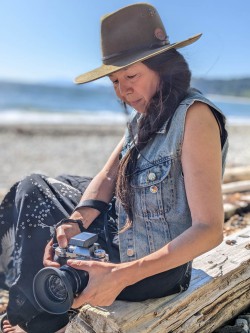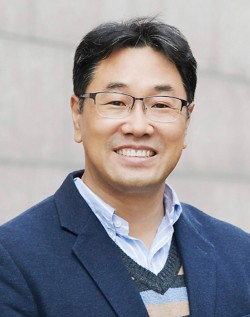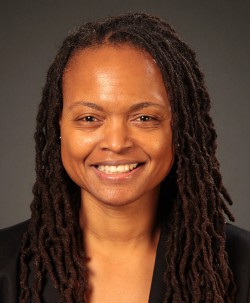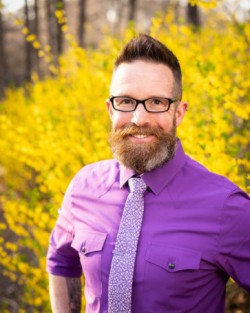Crossing Boundaries Toward Healing

Image credit: Siggi Nowak
April 15-16, 2024, 10 a.m.–4:30 p.m. EDT each day, online
Register Here
Though preaching is one of the oldest Christian practices and has been a staple of worship for millennia, it is constantly in the process of change. Indeed, like the proverbial river that cannot be stepped into twice because the flow of the water is constantly remaking it, it is not possible to preach the same sermon twice. This is so because a sermon is made by the hearers and the time and place in which they receive the sermon. Even as preaching changes, it begs to be “rethought,” its habitual practices and status quo assumptions questioned and re-examined, while exploring the ever-new channels being carved by the Word in the midst of our lives.
Crossing Boundaries Toward Healing

Conference Description
The Centre for Religion and Its Contexts at Emmanuel College and Shining Waters Regional Council (The United Church of Canada) are pleased to host the third "Rethinking Preaching' Conference with this year's theme, “Crossing Boundaries Toward Healing.” In a world that is polarized and deeply divided, the work of crossing boundaries for the sake of healing is crucial. Emmanuel College’s 2024 Rethinking Preaching Conference (RPC) invites participants to consider the challenges and opportunities posed by such issues as religious difference, mental health, queer identity, race, ethnicity, culture, ability, accessibility, online technology, and multi-language contexts and their intersectional natures. The sessions will help us explore what it means to be a preacher for today.
The Centre and Shining Waters invite seasoned and new preachers, students of homiletics, and participants who seek to “rethink preaching” to join our conference in 2024.
Keynote speaker: Rev. Dr. Debra Mumford
Invited preacher: Rev. Dr. Cheri DiNovo
Workshop Leaders: Rev. Kimiko Karpoff, Rev. Dr. Namjoong Kim, Rev. Dr. Jake Myers, Rev. Evan Swance-Smith.
Fees and Registration
This year's conference will be held online via Zoom, April 15–16, 2024
Registration Fee
- $50 for the two days
- Free for retirees and students
- Registration waivers available for those unable to pay the registration fee (visit the registration form for details)
Schedule: Monday, April 15, 2024
|
Time (EDT) |
Speaker/Session and Zoom Link |
Title and Description |
|
10–10:30 a.m. |
Conference Opening Rev. Dr. HyeRan Kim-Cragg Opening Remarks, Land Acknowledgement
TBA Shining Waters Regional Council (UCC) Welcome
Shawn Kazubowski-Houston Events and Media Coordinator, Centre for Religion and Its Contexts, Emmanuel College Welcome, Conference Overview, Housekeeping |
NOTE: all participant bios are available on the RPC2024 website. |
|
10:30 a.m.– |
Rev. Dr. Debra Mumford
Wing Yi Wong
|
From Stigma to Acceptance: Preaching Mental Health Well-Being in the Church and Beyond Over the past decade or so, mental illness has begun to make its way into mainstream media with the help of medical breakthroughs with drugs such as Zoloft, Xanex and Latuda which are widely advertised to treat illnesses such as depression, ADHD and bipolar disorder. Celebrities such as Simone Biles, Lady Gaga, Mariah Carey and Justin Bieber have publicly acknowledged their struggles with various types of mental illness. The social isolation widely experienced during the Covid-19 pandemic forced many to seek mental health counseling and therapy to address mental health concerns such as depression. Yet, even with these medical advances and affirming public conversations, mental illness is still stigmatized both inside and outside of the church. In this lecture, Mumford will propose biblical, theological and homiletical approaches to enable the people of God to view mental illness in the same way many view physical illness – that just as God is able to heal the physical body with a combination of faith and medical treatment, likewise God is able to heal mental illness through prayer in combination with medical treatment. |
|
11:45 a.m. –12 p.m. |
Break |
|
|
12–1:15 p.m. |
Session 1 Workshops
|
|
|
|
Rev. Kimiko Karpoff
|
The Myth of a Normal Sermon: reaching across boundaries from other to all Post pandemic, mental health has moved from other to everyone, from the edges to the centre. Crossing boundaries allows us to consider how to address this as preachers, without necessarily talking about it. |
|
Rev. Dr. Namjoong Kim
|
Exploring the Fusion of Language and Culture: A Workshop on Crossing Boundaries in Worship and Preaching This workshop delves into the intricate art of seamlessly blending diverse languages and cultures to craft a profound and all-encompassing worship experience. It also addresses the strategies required to enhance the effectiveness of preaching across linguistic and cultural boundaries. Participants can expect to acquire practical techniques, gain valuable insights, and actively engage in discussions geared towards refining their capabilities in leading worship and delivering sermons within the context of complex multicultural settings. |
|
|
1:15–2 p.m. |
Lunch Break
|
|
|
2–3:15 p.m. |
Session 2 Workshops
|
|
|
|
Rev. Kimiko Karpoff
|
The Myth of a Normal Sermon: reaching across boundaries from other to all Post pandemic, mental health has moved from other to everyone, from the edges to the centre. Crossing boundaries allows us to consider how to address this as preachers, without necessarily talking about it. |
|
Rev. Dr. Namjoong Kim
|
Exploring the Fusion of Language and Culture: A Workshop on Crossing Boundaries in Worship and Preaching This workshop delves into the intricate art of seamlessly blending diverse languages and cultures to craft a profound and all-encompassing worship experience. It also addresses the strategies required to enhance the effectiveness of preaching across linguistic and cultural boundaries. Participants can expect to acquire practical techniques, gain valuable insights, and actively engage in discussions geared towards refining their capabilities in leading worship and delivering sermons within the context of complex multicultural settings. |
|
|
3:15–3:30 p.m. |
Break |
|
|
3:30–4:30 p.m. |
Plenary Session Workshop leaders, respondent, and keynote speaker |
|
Schedule: Tuesday, April 16, 2024
|
Time (EDT) |
Speaker/Session and Zoom Link |
Title and Description |
|
|
10–11 a.m. |
Opening and Worship Rev. Dr. Cheri DiNovo, C.M. Preaching HyeLim Yoon Response |
Queer Evangelism":Our Radical Gender Non-Conforming Scripture
|
|
|
11–11:15 a.m. |
Break |
||
|
11:15 a.m.–12:30 p.m. |
Session 3 Workshops
|
||
|
|
Rev. Dr. Jacob Myers
|
Digitizing Identities: Rethinking Your Homiletical Self for Online and Hybrid Preaching All preachers manifest a style and orientation to sermon development and delivery that tends to capture their homiletical essence as preachers. Traditional homiletical texts tend to speak of this as the preacher’s “image.” Some common images of the preacher are the preacher as teacher, storyteller, poet, prophet, and spiritual director. In this workshop, we’ll think together about preachers’ guiding image(s) and how particular kinds of online and hybrid preaching might align most faithfully to who preachers understand themselves to be in the pulpit. |
|
|
|
Rev. Evan Swance-Smith
|
Preaching the Gospel of your Truth Description forthcoming. |
|
|
12:30–1:30 p.m. |
Lunch Break
|
||
|
1:30–2:45 p.m. |
Session 4 Workshops
|
||
|
|
Rev. Dr. Jacob Myers
|
Digitizing Identities: Rethinking Your Homiletical Self for Online and Hybrid Preaching All preachers manifest a style and orientation to sermon development and delivery that tends to capture their homiletical essence as preachers. Traditional homiletical texts tend to speak of this as the preacher’s “image.” Some common images of the preacher are the preacher as teacher, storyteller, poet, prophet, and spiritual director. In this workshop, we’ll think together about preachers’ guiding image(s) and how particular kinds of online and hybrid preaching might align most faithfully to who preachers understand themselves to be in the pulpit. |
|
|
|
Rev. Evan Swance-Smith
|
Preaching the Gospel of your Truth Description forthcoming. |
|
|
2:45–3 p.m. |
Break |
||
|
3–4 p.m. |
Plenary, Celebration and Closing
Participants TBA |
||
Biographies
 Rev. Dr. Cheri DiNovo, C.M. is an ordained United Church minister who performed Canada’s first legalized same sex marriage. She is currently the minister at Trinity-St. Paul’s Centre for Faith, Justice, and the Arts. Cheri is a Member of the Order of Canada, recognized for her contributions to provincial politics and for her lifelong advocacy of social justice. As the former Member of Provincial Parliament for Parkdale–High Park in Ontario, Cheri passed into law more pro-LGBTQ2+ legislation than anyone in Canadian history. Visit DiNovo’s website.
Rev. Dr. Cheri DiNovo, C.M. is an ordained United Church minister who performed Canada’s first legalized same sex marriage. She is currently the minister at Trinity-St. Paul’s Centre for Faith, Justice, and the Arts. Cheri is a Member of the Order of Canada, recognized for her contributions to provincial politics and for her lifelong advocacy of social justice. As the former Member of Provincial Parliament for Parkdale–High Park in Ontario, Cheri passed into law more pro-LGBTQ2+ legislation than anyone in Canadian history. Visit DiNovo’s website.
 Rev. Kimiko Karpoff is a writer, photographer and energy healing practitioner with a background in communications and community ministry. Karpoff is also a diaconal minister in the United Church of Canada and part of a new expression of Christian community in New Westminster exploring how ancient, pre-Christiandom roots of our faith can inform a modern expression of church. “Kimiko means child of joy and beauty. Ki ~ 喜 = joy; Mi ~ 美 = beauty; Ko ~ 子 = child. This inspires me to bring joy and beauty to what I do. I am particularly drawn to the intersection of story, community and healing.” Visit Karpoff’s website.
Rev. Kimiko Karpoff is a writer, photographer and energy healing practitioner with a background in communications and community ministry. Karpoff is also a diaconal minister in the United Church of Canada and part of a new expression of Christian community in New Westminster exploring how ancient, pre-Christiandom roots of our faith can inform a modern expression of church. “Kimiko means child of joy and beauty. Ki ~ 喜 = joy; Mi ~ 美 = beauty; Ko ~ 子 = child. This inspires me to bring joy and beauty to what I do. I am particularly drawn to the intersection of story, community and healing.” Visit Karpoff’s website.
 Rev. Dr. Namjoong Kim is an ordained Presbyterian pastor in the Republic of Korea (PROK) with a PhD in Liturgical Studies from Drew Theological School in the United States, which he earned in 2016. Currently, he serves as an associate professor specializing in the practice of ministry and holds the position of director for Korean Doctoral Programs at Claremont School of Theology in California. Dr. Kim leverages his extensive teaching and ministerial experience to develop innovative approaches to practical engagement. His expertise primarily centers on Worship and Preaching, with a particular focus on social justice, creative preaching and worship, sacraments, conflict resolution, reconciliation, and transformation through preaching and worship. Additionally, he places strong emphasis on multiculturalism in his work, aiming to prepare students for significant leadership roles in the field of ministry, both academically and practically." Visit Kim’s faculty page.
Rev. Dr. Namjoong Kim is an ordained Presbyterian pastor in the Republic of Korea (PROK) with a PhD in Liturgical Studies from Drew Theological School in the United States, which he earned in 2016. Currently, he serves as an associate professor specializing in the practice of ministry and holds the position of director for Korean Doctoral Programs at Claremont School of Theology in California. Dr. Kim leverages his extensive teaching and ministerial experience to develop innovative approaches to practical engagement. His expertise primarily centers on Worship and Preaching, with a particular focus on social justice, creative preaching and worship, sacraments, conflict resolution, reconciliation, and transformation through preaching and worship. Additionally, he places strong emphasis on multiculturalism in his work, aiming to prepare students for significant leadership roles in the field of ministry, both academically and practically." Visit Kim’s faculty page.
 Rev. Dr. Debra Mumford (dean of the seminary; Frank H. Caldwell Professor of Homiletics, Louisville Seminary) is an ordained minister in American Baptist Churches, USA and affiliate minister with the Alliance of Baptists. She joined the Louisville Seminary faculty in 2007. She majored in mechanical engineering at Howard University and worked in engineering before answering her call to ministry. Mumford served as a youth pastor, associate minister and church administrator in several congregations in the San Francisco Bay Area. Her scholarly interests include African American prophetic preaching, prosperity preaching, eschatology and the reign of God, and preaching and health. Since 2008, Mumford has served as a mentor for the Louisville Youth Group, a grassroots organization that provides resources and a safe space for gay, lesbian, bisexual, transgender and questioning young people ages 14 to 20. Visit Mumford’s faculty page.
Rev. Dr. Debra Mumford (dean of the seminary; Frank H. Caldwell Professor of Homiletics, Louisville Seminary) is an ordained minister in American Baptist Churches, USA and affiliate minister with the Alliance of Baptists. She joined the Louisville Seminary faculty in 2007. She majored in mechanical engineering at Howard University and worked in engineering before answering her call to ministry. Mumford served as a youth pastor, associate minister and church administrator in several congregations in the San Francisco Bay Area. Her scholarly interests include African American prophetic preaching, prosperity preaching, eschatology and the reign of God, and preaching and health. Since 2008, Mumford has served as a mentor for the Louisville Youth Group, a grassroots organization that provides resources and a safe space for gay, lesbian, bisexual, transgender and questioning young people ages 14 to 20. Visit Mumford’s faculty page.
 Rev. Dr. Jacob Myers serves as the Wade P. Huie, Jr. Associate Professor of Homiletics at Columbia Theological Seminary. He’s an ordained minister of word and sacrament in the PC(USA). Jake has written numerous books and essays, the latest of which is entitled “Stand-up Preaching: Homiletical Insights from Contemporary Comedians” (Cascade, 2022). He has a forthcoming book in press with Lexington Book’s Theology and Pop Culture series connecting theology and ethics with stand-up comedy. He provides online homiletical resources and sermon coaching at www.preachingdr.com.
Rev. Dr. Jacob Myers serves as the Wade P. Huie, Jr. Associate Professor of Homiletics at Columbia Theological Seminary. He’s an ordained minister of word and sacrament in the PC(USA). Jake has written numerous books and essays, the latest of which is entitled “Stand-up Preaching: Homiletical Insights from Contemporary Comedians” (Cascade, 2022). He has a forthcoming book in press with Lexington Book’s Theology and Pop Culture series connecting theology and ethics with stand-up comedy. He provides online homiletical resources and sermon coaching at www.preachingdr.com.
 In the vibrant tapestry of Hamilton's Westdale United Church, Reverend Evan Swance-Smith (He/She/They) stands at the intersection of progressive values, unwavering faith, and a commitment to inclusivity. A graduate of Emmanuel College, Evan's journey as a queer clergy person in The United Church of Canada has been marked by a steadfast dedication to breaking down barriers and fostering a community that embraces the rich diversity of human experience. Ordained in 2013, Reverend Evan challenges traditional norms of who God calls to lead and has championed a theology of acceptance and love. Their ministry is a testament to the belief that spirituality knows no bounds. Beyond the traditional role of a clergy person, Evan actively works to dismantle barriers that may have once excluded LGBTQ+ individuals from the sanctuary of faith. Their affirming messages inspire congregants to embrace their authentic selves, fostering a sense of belonging that transcends societal expectations. Rev. Evan's commitment to inclusivity extends far beyond the pulpit. As a progressive trans and queer clergy person, they have been a vocal advocate for LGBTQ+ rights, using their position to amplify the voices of those often marginalized by traditional religious institutions. Westdale United Church, under Evan’s guidance, continues its long legacy as a safe space for the LGBTQ+ community, a haven where love and acceptance flourish. Evan’s involvement in social justice causes, from advocating for LGBTQ+ rights to supporting initiatives that combat discrimination, reflects their dedication to making a tangible impact on the world around them. Visit Westdale United Church’s website.
In the vibrant tapestry of Hamilton's Westdale United Church, Reverend Evan Swance-Smith (He/She/They) stands at the intersection of progressive values, unwavering faith, and a commitment to inclusivity. A graduate of Emmanuel College, Evan's journey as a queer clergy person in The United Church of Canada has been marked by a steadfast dedication to breaking down barriers and fostering a community that embraces the rich diversity of human experience. Ordained in 2013, Reverend Evan challenges traditional norms of who God calls to lead and has championed a theology of acceptance and love. Their ministry is a testament to the belief that spirituality knows no bounds. Beyond the traditional role of a clergy person, Evan actively works to dismantle barriers that may have once excluded LGBTQ+ individuals from the sanctuary of faith. Their affirming messages inspire congregants to embrace their authentic selves, fostering a sense of belonging that transcends societal expectations. Rev. Evan's commitment to inclusivity extends far beyond the pulpit. As a progressive trans and queer clergy person, they have been a vocal advocate for LGBTQ+ rights, using their position to amplify the voices of those often marginalized by traditional religious institutions. Westdale United Church, under Evan’s guidance, continues its long legacy as a safe space for the LGBTQ+ community, a haven where love and acceptance flourish. Evan’s involvement in social justice causes, from advocating for LGBTQ+ rights to supporting initiatives that combat discrimination, reflects their dedication to making a tangible impact on the world around them. Visit Westdale United Church’s website.
Rethinking Preaching Conference Archives (under construction)
Conference Description
Though preaching is one of the oldest Christian practices and has been a staple of worship for millennia, it is constantly in the process of change. Indeed, like the proverbial river that cannot be stepped into twice because the flow of the water is constantly remaking it, it is not possible to preach the same sermon twice. This is so because a sermon is made by the hearers and the time and place in which they receive the sermon. Even as preaching changes, it begs to be “rethought,” its habitual practices and status quo assumptions questioned and re-examined, while exploring the ever-new channels being carved by the Word in the midst of our lives.
Presently, a number of diverse topics have gripped preachers in newly urgent ways, such as racism and ecological well-being. Online worship and the use of technology during the pandemic is yet another topic that challenges us to rethink preaching.
The Centre for Religion and Its Contexts (Emmanuel College) and Shining Waters Regional Council (The United Church of Canada) invited seasoned and new preachers, students of homiletics, and participants who seek to “rethink preaching” by examining and exploring issues that are directly challenged in the wake of a number of social issues that have intensified during the global COVID moment. Our keynote speakers, Prof. Frank Thomas (Christian Theological Seminary) and Prof. Carolyn Helsel (Austin Theological Seminary), and 10 experienced workshop leaders helped us explore the changing contexts of preaching.
Schedule: Friday, August 20, 2021
|
Time (EDT) |
Speaker |
Workshop/Talk Description |
|
9–9:30 a.m.
|
Prof. HyeRan Kim-Cragg Rev. Dr. John H. Young Opening |
|
|
9:30–10:45 a.m. |
Prof. Frank Thomas Keynote Lecture |
Pandemic Preaching and the Unmasking of Tribal Gods Those that have confidence in preaching are often unsure and uncertain as to how and what to preach to a divided and discombobulated church and nation, given the reality and ramifications of systemic oppression, digital church, and the Covid-19 pandemic. These realities offer the preacher the opportunity to preach dangerous sermons that unmask tribal gods and reveal the God of the universe manifest in the life, death, and resurrection of Jesus Christ. |
|
11 a.m.
|
Session 1 Workshops
|
|
|
|
Prof. Dorcas Gordon Feminism and Pandemic Preaching |
Wisdom for Times of Crisis Research indicates that COVID-19 has uncovered deep cracks in what is considered “normal.” The result is increased homelessness, unemployment, family violence, and ethical dilemmas. What will the “new normal” look like or value in terms of the economy, ecology, global politics? Many feel that the world is at a turning point and that wisdom and action is urgently needed. Research also shows that the pandemic has impacted women more than their male counterparts. Not only is there anxiety about the “new normal” there is also heightened financial stress in terms of employment and advancement opportunities, increased worry for the safety of their extended family – parents and children, and for the physical and mental health and well-being of their congregational family in a time of restrictions and lockdowns. Women who preach experience additional stress as they are called to prepare weekly sermons that affirm hope in the midst of the unknowns, the anxieties and fears of the present pandemic. What gives us strength for the task? What wisdom from our sisters, past and present, is available to us in this and other times of crisis? This workshop will draw on their insight for this unusual and challenging time. |
|
Rev. Hoeun Lee Technology and Preaching |
This workshop will focus on the following topics: 1. Media Literacy: “The Medium is the Message” 2. Representation Matters: “This is Not a Pipe” 3. The Grammar of Online Liturgical Communication: “The Online World is Our Parish” 4. Case Study & Discussion: Micro- & Macro-aggression in Online Worship & Preaching 5. Online Preaching Practice as Anti-Racist Resistance: Tactics to Use New Media Technology in Anti-Racist Preaching |
|
|
Prof. Kathy Black Disability/Illness and Preaching |
This workshop will address the impact of preaching (and worship) on persons who live with disabilities exploring biblical and theological perspectives as well as practical issues involving language, exegesis and sermon design. Is our preaching liberative or oppressive for persons with disabilities? As a result of the pandemic, how have the changes to worship and preaching made worship more or less accessible? |
|
|
Rev. Murray Pruden Embodied Exegesis and Preaching |
Collective Street & Community Theatre– the Act of Storytelling Collective theatre is a creative & experimental type of active movement through the arts. But most of all, within an Indigenous lens, creates the art of storytelling from a unique community perspective. From this active movement, a collective group displays their stories, images & performance to an audience. The work & themes created collectively in a group has an impact on others in sociopolitical themes. As activist & leaders we have an opportunity to share our stories through street theatre that influence an unspoken community message with 3 ideals- visibility, simplicity & promotion. |
|
|
Rev. Dr. David Kim-Cragg Storytelling and Preaching |
We Are the Stories We Preach This workshop will focus on stories for preaching in different forms. Each participant will be expected to tell a story from the Bible or a story about a story from the Bible. A story about the leader’s own journey of storytelling will be followed by a reflection on the power of stories to teach theology. Stories will be examined for how they can stand alone in a worship service or be incorporated into sermons or prayers. Reflection on how storytelling in worship has evolved during the COVID pandemic will also take place. Participants will be given an opportunity to share their own stories as well. By the end of our time together it is the objective of this workshop that all participants will have gained new insight and perspective on the role of stories in preaching and that each will have shared a story, thereby deepening their experience into the art of storytelling. |
|
|
12:30–2 p.m. |
Lunch Break |
|
|
2–3:30 p.m.
|
Session 2 Workshops
|
|
|
|
Prof. Dorcas Gordon Feminism and Pandemic Preaching |
Wisdom for Times of Crisis Research indicates that COVID-19 has uncovered deep cracks in what is considered “normal.” The result is increased homelessness, unemployment, family violence, and ethical dilemmas. What will the “new normal” look like or value in terms of the economy, ecology, global politics? Many feel that the world is at a turning point and that wisdom and action is urgently needed. Research also shows that the pandemic has impacted women more than their male counterparts. Not only is there anxiety about the “new normal” there is also heightened financial stress in terms of employment and advancement opportunities, increased worry for the safety of their extended family – parents and children, and for the physical and mental health and well-being of their congregational family in a time of restrictions and lockdowns. Women who preach experience additional stress as they are called to prepare weekly sermons that affirm hope in the midst of the unknowns, the anxieties and fears of the present pandemic. What gives us strength for the task? What wisdom from our sisters, past and present, is available to us in this and other times of crisis? This workshop will draw on their insight for this unusual and challenging time. |
|
Rev. Hoeun Lee Technology and Preaching |
This workshop will focus on the following topics: 1. Media Literacy: “The Medium is the Message” 2. Representation Matters: “This is Not a Pipe” 3. The Grammar of Online Liturgical Communication: “The Online World is Our Parish” 4. Case Study & Discussion: Micro- & Macro-aggression in Online Worship & Preaching 5. Online Preaching Practice as Anti-Racist Resistance: Tactics to Use New Media Technology in Anti-Racist Preaching |
|
|
Prof. Kathy Black Disability/Illness and Preaching |
This workshop will address the impact of preaching (and worship) on persons who live with disabilities exploring biblical and theological perspectives as well as practical issues involving language, exegesis and sermon design. Is our preaching liberative or oppressive for persons with disabilities? As a result of the pandemic, how have the changes to worship and preaching made worship more or less accessible? |
|
|
Rev. Murray Pruden Embodied Exegesis and Preaching |
Collective Street & Community Theatre– the act of Storytelling Collective theatre is a creative & experimental type of active movement through the arts. But most of all, within a Indigenous lens, creates the art of storytelling from a unique community perspective. From this active movement a collective group displays their stories, images & performance to an audience. The work & themes created collectively in a group has an impact on others in sociopolitical themes. As activist & leaders we have an opportunity to share our stories through street theatre that influence an unspoken community message with 3 ideals- visibility, simplicity & promotion. |
|
|
Rev. Dr. David Kim-Cragg Storytelling and Preaching |
We are the Stories We Preach This workshop will focus on stories for preaching in different forms. Each participant will be expected to tell a story from the Bible or a story about a story from the Bible. A story about the leader’s own journey of storytelling will be followed by a reflection on the power of stories to teach theology. Stories will be examined for how they can stand alone in a worship service or be incorporated into sermons or prayers. Reflection on how storytelling in worship has evolved during the COVID pandemic will be also take place. Participants will be given an opportunity to share their own stories as well. By the end of our time together it is the objective of this workshop that all participants will have gained new insight and perspective on the role of stories in preaching and that each will have shared a story, thereby deepening their experience into the art of storytelling. |
|
|
3:30–5 p.m. |
Caucus meeting
|
|
Schedule: Saturday, August 21, 2021
|
Time (EDT) |
Speaker |
Workshop/Talk Description |
|
9–9:30 a.m.
|
Prof. HyeRan Kim-Cragg Opening |
|
|
9:30–10:45 |
Prof. Carolyn Helsel Keynote Lecture |
Preaching about racism: what does this look like and how do we do it well? Carolyn Helsel describes the process of preparing sermons that help congregants better understand racism, their own racialized identities, and the response of anti-racism work that comes from a vision of the gospel promise of beloved community. |
|
11 a.m.
|
Session 3 Workshops
|
|
|
|
Rev. Dr. Anthony Bailey Decolonization/Reconciliation and Preaching |
Preaching that Interrupts, Provokes and Heals The Covid-19 Pandemic has wreak havoc all around the world. Beyond the tragic toll on Human life, the pandemic has also both exposed and escalated systemic inequities; particularly, systemic anti-Black Racism. We are being summoned by the Spirit of God to interrogate our preaching and theological assumptions. To what extent has our preaching been captive, inadvertently or intentionally, to colonizing, racist and privileged assumptions and interpretive proclamation? We will engage theologically with biblical narratives, texts and testimony that join with other ‘initiatives’ to interrupt, provoke and heal. |
|
Prof. Leah Schade Ecology and Preaching |
Creation-Crisis Preaching: Strategies, Tactics, and Text Studies Preaching “good news” in the face of environmental devastation, the climate crisis, and ecological injustice can feel overwhelming to clergy and congregations alike. Yet this is precisely the time when Creation-centered sermons are needed to ground ourselves in the magnificence and fragility of the world God has made. Rev. Dr. Leah Schade will introduce a three-fold approach for preaching that addresses environmental justice issues with a particular eye towards congregational context (geography, culture, community, political tensions, economics, etc.). The goal is to help preachers develop an environmentally-literate approach to preaching that honestly and creatively names the reality of our ecologically-violated world, while emphasizing a hope-filled “eco-resurrection” through Christ’s redemption of Creation. Participants will learn to use a “green lens” for interpreting and preaching biblical texts and apply the lens to upcoming lectionary passages. |
|
|
Rev. Sadekie Lyttle-Forbes What Makes the Message Stick? |
“Sticky Sermons” How often do we have preachers at the end of delivering a message, hear the comment “Good sermon today” or “That was what I needed to hear today.” Often it is said in passing without any opportunity for a deeper discussion about what made the sermon good for this person. One of the central purposes of preaching is to deliver a message that is not simply good for the persons listening in the moment, giving them something they needed to hear, but it should also be sticky enough that it stays with them as an enduring memory that becomes useful as they live out their faith in the world. During this pandemic, I became acutely aware of the need to ensure that sermons are sticky, because our hearers come to worship with the hunger for a word that will help them cope and process their experiences. How do we do that? We will explore some ingredients that used in combination help to give the sermon the stickiness it needs to have a lasting effect on the hearers. |
|
|
Prof. Ross Bartlett Lectionary and Preaching |
The lectionary has a long history as an aid to faithful reading of scripture. In recent generations, many traditions have begun to employ it as an aid to liturgical and homiletical planning and preparation. This workshop explores the benefits and challenges of the lectionary as a tool for preaching and the ways planning and texts can enrich the community of faith. |
|
|
Rev. Richard Choe Preaching without Notes |
The workshop will be on ways to prepare, construct, organize, and preach a sermon without notes. There will be a 20-minutes presentation and 70 minutes for the interactive conversation, discussions, and organizing a sermon utilizing resources from your life/ministry contexts. Using visual resources, poetry, and storytelling from your “cultural” contexts will be part of the workshop. |
|
|
12:30–2 p.m. |
Lunch Break |
|
|
2–3:30 p.m.
|
Session 4 Workshops
|
|
|
|
Rev. Dr. Anthony Bailey Decolonization/Reconciliation and Preaching |
Preaching that Interrupts, Provokes and Heals The Covid-19 Pandemic has wreak havoc all around the world. Beyond the tragic toll on Human life, the pandemic has also both exposed and escalated systemic inequities; particularly, systemic anti-Black Racism. We are being summoned by the Spirit of God to interrogate our preaching and theological assumptions. To what extent has our preaching been captive, inadvertently or intentionally, to colonizing, racist and privileged assumptions and interpretive proclamation? We will engage theologically with biblical narratives, texts and testimony that join with other ‘initiatives’ to interrupt, provoke and heal. |
|
Prof. Leah Schade Ecology and Preaching |
Creation-Crisis Preaching: Strategies, Tactics, and Text Studies Preaching “good news” in the face of environmental devastation, the climate crisis, and ecological injustice can feel overwhelming to clergy and congregations alike. Yet this is precisely the time when Creation-centered sermons are needed to ground ourselves in the magnificence and fragility of the world God has made. Rev. Dr. Leah Schade will introduce a three-fold approach for preaching that addresses environmental justice issues with a particular eye towards congregational context (geography, culture, community, political tensions, economics, etc.). The goal is to help preachers develop an environmentally-literate approach to preaching that honestly and creatively names the reality of our ecologically-violated world, while emphasizing a hope-filled “eco-resurrection” through Christ’s redemption of Creation. Participants will learn to use a “green lens” for interpreting and preaching biblical texts and apply the lens to upcoming lectionary passages. |
|
|
Rev. Sadekie Lyttle-Forbes What Makes the Message Stick? |
“Sticky Sermons” How often do we have preachers at the end of delivering a message, hear the comment “Good sermon today” or “That was what I needed to hear today.” Often it is said in passing without any opportunity for a deeper discussion about what made the sermon good for this person. One of the central purposes of preaching is to deliver a message that is not simply good for the persons listening in the moment, giving them something they needed to hear, but it should also be sticky enough that it stays with them as an enduring memory that becomes useful as they live out their faith in the world. During this pandemic I became acutely aware of the need to ensure that sermons are sticky, because our hearers come to worship with the hunger for a word that will help them cope and process their experiences. How do we do that? We will explore some ingredients that used in combination help to give the sermon the stickiness is needs to have a lasting effect on the hearers. |
|
|
Prof. Ross Bartlett Lectionary and Preaching |
The lectionary has a long history as an aid to faithful reading of scripture. In recent generations, many traditions have begun to employ it as an aid to liturgical and homiletical planning and preparation. This workshop explores the benefits and challenges of the lectionary as a tool for preaching and the ways planning and texts can enrich the community of faith. |
|
|
Rev. Richard Choe Preaching without Notes |
The workshop will be on ways to prepare, construct, organize, and preach a sermon without notes. There will be a 20-minutes presentation and 70 minutes for the interactive conversation, discussions, and organizing a sermon utilizing resources from your life/ministry contexts. Using visual resources, poetry, and storytelling from your “cultural” contexts will be part of the workshop. |
|
|
3:30–5 p.m.
|
Plenary and Closing
|
|

